FULL TRANSCRIPT
Sir, given that crimes against women are on an alarming rise, does the government have any plans of establishing or setting up a more state-of-the-art forensic laboratories, like that of Chandigarh, in recent future?
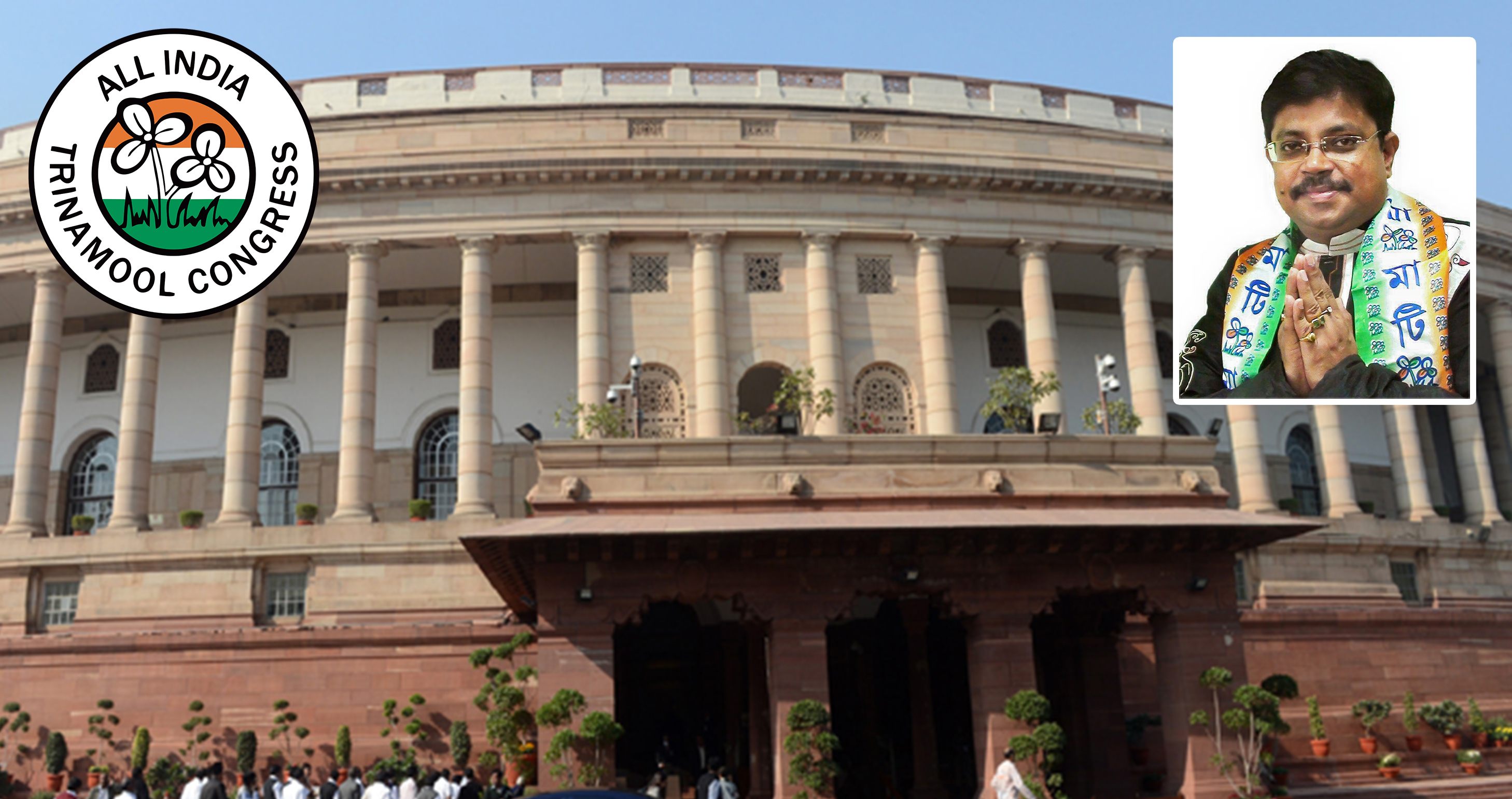
FULL TRANSCRIPT
Sir, given that crimes against women are on an alarming rise, does the government have any plans of establishing or setting up a more state-of-the-art forensic laboratories, like that of Chandigarh, in recent future?
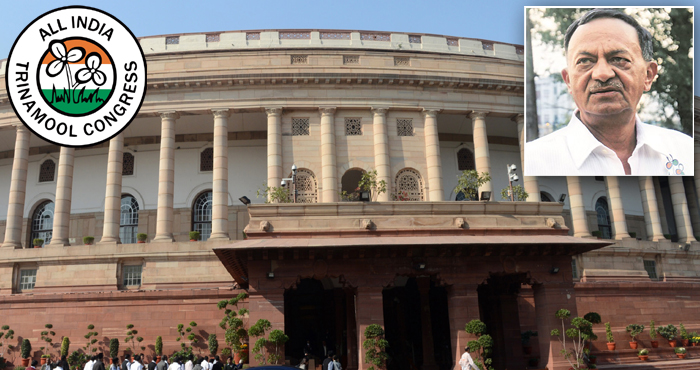
FULL TRANSCRIPT
Will the Minister of PETROLEUM AND NATURAL GAS be pleased to state:
(a) whether the public sector Oil and Natural Gas Corporation’s (ONGC) cash reserves are precariously low, if so, the details thereof;
(b) whether the situation has been aggravated by the Government’s policy of pushing State-run firms to pay out more dividends, go in for buybacks and acquire stakes in other State-owned firms to meet its fiscal deficit targets, if so, the details thereof; and
(c) whether the dwindling of ONGC’s cash reserve had adversely affected its working capital requirements, if so, at what level should such reserves be ideally kept, the details thereof?
SUPPLEMENTARY QUESTION 1:
ONGC has in the last few years undergone a metamorphosis. It has diversified widely into such things as SEZ infrastructure, in retail etc. The question is, is the ONGC shifting away from its core competence in oil exploration and production? Is it because of the continuous movement of the NELP, NELP 2, NELP 3 where privatisation is taking place?
SUPPLEMENTARY QUESTION 2:
The limited that ONGC Videsh Ltd. has acquired a lot of oil fields across 20/30 countries, what the future of OVL?
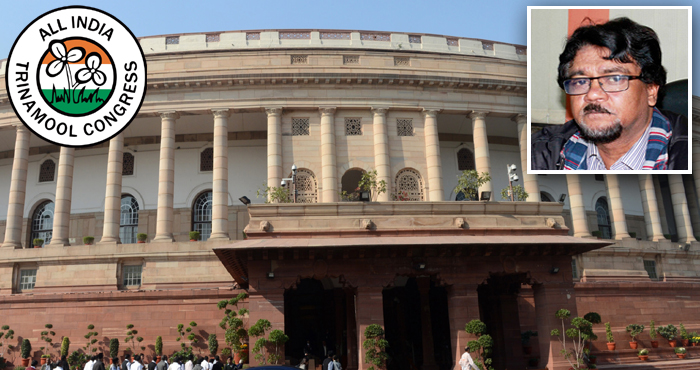
FULL TRANSCRIPT
Sir, through you, I want to know from the minister the unemployment rate in the country last year, and the details thereof.
Secondly, I want to know from the minister the number of jobs lost, and the details thereof.
Thank you.
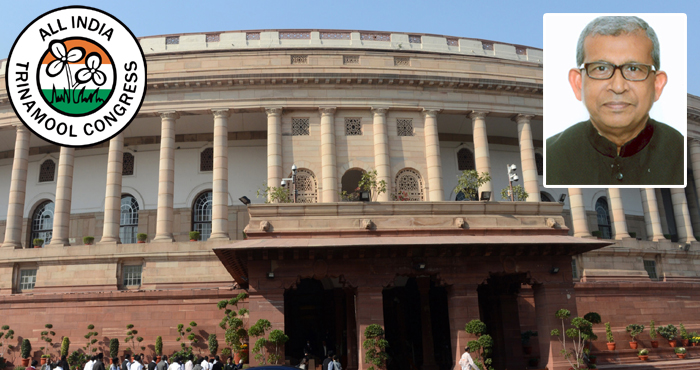
FULL TRANSCRIPT
Sir, I want to know through you, from the minister, what prompted the government and his department, with a pressing effect, to disinvest ONGC, which is one of the top Navratna companies in the country. What are the reasons?

FULL TRANSCRIPT
Sir, the government has reduced the interest rates for small savings schemes by 10 basic points for the second quarter of this financial year. The government intends to match the sustaining interest rate in the banking sector since the Reserve Bank of India cut its benchmark policy rate thrice during the year.
However, the government has lowered the interest rates on small savings for the first time in 2019, which will fetch lower returns to the savers barring interest on savings deposit have been at four percent while the rates from term deposits, public provident funds, national saving certificates and even the girl child scheme, ‘Sukanya Samridhi’ have been cut. Also, the maturity period of the ‘Kisan Vikaspatra’ has been raised by a month.
Sir, moreover, the government has been systematically reducing the interest rates in small saving schemes over the past five years which has hurt the common people, especially the elderly who depend on the interest rates for their sustenance. It has also lead to the depletion of savings of the people.
Sir, we implore the government to look towards the welfare of the common man who are already burdened with high taxation and compliance issues who will now suffer further from their savings being drained. Sir, we ask the government to sustain interest rates on small saving schemes aimed at aiding financial equity among the people of the country.
Thank you.

FULL TRANSCRIPT
Thank you for providing me this opportunity to speak on The Central Educational Institutions (Reservation in Teachers’ Cadre) Bill, 2019. I feel this is yet another effort to bring equality by reviving the 200 point roster as against the 13 point system put forth by the High Court of Allahabad. The aim of providing is to consider a central educational institution as a unit in place of departments. Sir, the UGC guidelines of 2006 were quashed by the High Court of Allahabad in 2016.
Sir I have a question, why didn’t the Government introduce this Bill in the following sessions? The Supreme Court too gave similar verdict on January 23, 2019. The Parliament was in session, as we know Sir, from January 31 to February 13. Again we did not find the Government making any effort to legislate on the matter. Instead Sir, an Ordinance was promulgated on March 7 , 2019 just three days prior to the announcement of elections. This cannot be a mere coincidence is what I feel. This held a clear intention of taking advantage of time to make hollow promises.
If we look at the past, in the first 30 years since independence, out of every 10 Bills passed, one was an Ordinance. In the next 30 years, out of every 10 Bills passed about two were Ordinances. In the last two years, out of every 10 Bills, passed four were Ordinances. In this regard Sir, I have deep concerns. Promulgating Ordinances time and again is against the very spirit and nature of a parliamentary form of government.
This House is constituted of earned an eminent representatives of the people and by promulgating Ordinances on every matter the Government is exhibiting an authoritarian feature. It is also discarding the views and inputs of the House. The House seeks to enact laws, which the Indian people deserve. But, as of today, as we saw most deplorably, the way the Government is functioning. Many Hon’ble Members were complaining that they were denied the rightful opportunity of putting in their suggestions in the form of Amendments. However Sir, we understand the House should be given due importance it deserves, I request the government to modify this process of discharging functions.
Next Sir, I would like to say the main mandates for reservation of Scheduled Castes and Scheduled Tribes and Other Backward Classes to fill up more than 7,000 vacant positions in educational institutions. This is definitely a welcome step but the process that this government has adopted is no doubt faulty and promotes the interests of certain sections of the society.
Sir, I would like to further say that we know that the new notification is also an attempt to dent efforts to ensure representation of SC/ST and OBC categories as per the constitutional mandate of 15%, 7.5% and 27% respectively. If this system is taken, all professors of the same grouping across all departments in the university will be grouped together to estimate the extent of the quota. As a result, positions open will be reduced, limited and not filling up positions as per requirement of subjects. Some departments/subjects will have all reserved and some with all unreserved candidates. Moreover, the number of vacancies will not meet the required constitutional mandate.
This is nothing but a sheer motive to leverage positions for the upper caste candidates. This bill proposes to dilute the entire concept of reservation itself.
Today, the reservation system in our government posts is on the basis of the posts and not the number of vacancies in that arena. So, why should the same system not be followed for educational institutions as well? This Bill proposes to bring about a systemic change in the basis of reservation. It is only introducing a system of discrimination in the educational institutions that will only alienate the backward classes.
Sir, I would also like to say that section 4, sub-section (i) and sub-clause (a) provides for a discriminatory clause. It says that certain institutions will be kept out of the provisions of this Bill. I would request the minister to explain the basis of such institutes. Some like science and technology, I understand. But when we are doing this is the government making mistake of direct capabilities of concerned categories that is the SC/ST and OBCs. When these universities have reservation for student community, why not they have it for the teaching community as well?
Sir, I would also like to question that is the government creating a sense of division and discrimination in appointing positions to the socially and economically deprived in these institutions of esteem. Is the government questioning the capabilities and undermining those that are entirely eligible.
Also Sir, we can see that our Hon’ble members of the treasury benches are taking the credit of having given the reservation for the economically backward sections. After all, taking credit is the most easy thing to do. Sir, in this Bill itself they have been deprived also. Sir, I would like to say that I have a few suggestions for the hon’ble minister.
Firstly, reservations should be allowed for the universities that are excluded because if the criteria put forth by them is made by any candidate of the concerned section then why not given him/her the opportunity. Why not give the devil his/her due?
Secondly, a regulatory body should be constituted to ensure a proper functioning of the provisions of the Bill and in case of any dispute it can discharge quick verdicts. This is so necessary because even after this Ordinance we have four universities, namely, Central University of Punjab, Karnataka University, Tamil Nadu University and Indira Gandhi National Tribal University. They did not comply with the provisions. This would have gone unnoticed Sir, if it was not brought up by one of the hon’ble member of this very August House itself. Also Sir, this is why a responsible body to handle the affairs is necessary. This body should be entrusted with the duty of looking into the judicial matters arising after employment. This is because every other day we come across cases involving hatred towards vulnerable sections, namely the SCs, STs, OBCs and the economically-backward sections (EBS) .
Doubting and questioning their capabilities is not right I feel. There is a high chance that the teachers being appointed through this will also face similar problems and that is why this is very necessary. This is also very important and imperative, Sir. At a time when we soon aspire to make India the third largest economic power of the world, we declare a mission to the moon, we boast of progress achieved in space which only three other nations in this globe are capable of, we are failing to provide a level ground for all. This Sir, is proved by the fact that atrocities meted out to the backward classes has increased by 37 per cent in the last decade.
Sir, in this regard I would also like to say that moreover to avoid cases like that, which involved suicide of Rohith Vemula, this is a very important step that the Government can and should take and it cannot be done until serious steps are taken.
Sir, also in this case, we have another most unfortunate case that took place recently, as recent as May, in Mumbai, where a young medical professional, Payal Tadvi lost her life due to suicide committed as a result of alleged casteist slur and discrimination. In this regard I would like to mention that Sukhdev Thorat, a professor emeritus of JNU and a former UGC chairman, had led a committee to investigate allegations of discriminatory treatment of SC and ST students at the All India Institute of Medical Sciences (AIIMS), and which had found that lower caste students had faced discriminations at the premier institute.
About the measures that should be taken to check discriminatory behaviour, the report says: “There has to be an Act by the government to make caste-based investigation at the university campus a punishable offence. Apart from this, a set of guidelines should be formulated for the upper caste students on how to behave in the presence of students from the marginalised sections.”
Jobs and educational reservations are very vital in the view of Dr Ambedkar. He had wanted reservation in services and educational institutions to be permanent. If those reservations were not put in place, it would have led to a constant struggle of the oppressed, who would have never found a channel to come into the mainstream. What would have been denied to them they would have taken by force. Thus we have to ensure measures to bring the backward classes into public service and provide to them what is rightfully due to them.
Thus I would like to request to send this Bill to a Standing Committee where stakeholders from all fields associated with this Bill would be consulted and proper legal suggestions are taken to correct the provisions of this Bill that would otherwise fully undermine the essence of reservation and its effects.
Thank you, Sir.
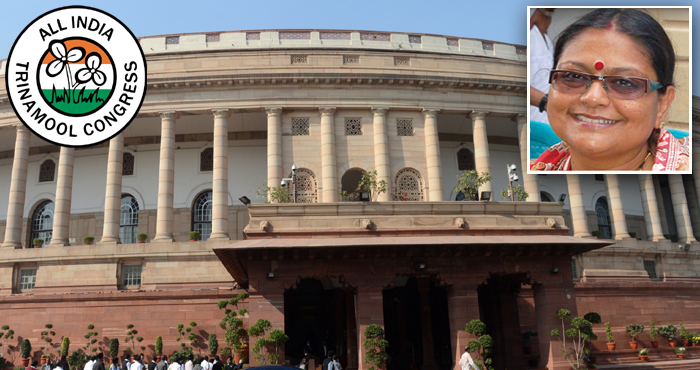
FULL TRANSCRIPT
The Indian Medical Council (Amendment) Bill, 2019 is the prelude to another Bill, precessed to another chapter, the NMC. The Indian Medical Council (Amendment) Bill, 2019 is to repeal the Ordinance promulgated by the Mahamahim Rashtrapati ji on January 12, 2019. This Bill has also been scrutinised by the department-related Parliamentary Standing Committee on Health and Family Welfare. This is not the first related Ordinance though – there has been one in 2010, one in 2018, and then another in 2019.
Let me first clarify that my party, All India Trinamool Council is always against the attitude or attempt to bypass the elected House of the People and pass an Ordinance. In the last few years, we have seen a ratio of 10 to 4 with respect to Bills to Ordinances whereas after independence, the first 30 years saw a ratio of only 1 Ordinance for every 10 Bills while the next 30 years saw only 2 Ordinances for every 10 Bills. This is undemocratic and unhealthy for our democracy.
The question is, why was the Bill was allowed to lapse several times since 2016, when the matter is such a serious one? We have seen many deaths, particularly 50 deaths in only one State of our nation. So I consider it my sacrosanct duty as a responsible Opposition member to sound out to the government that passing an Ordinance is a peril to democracy.
The Indian Medical Council was formed in 1933 and the first Indian Medical Council Act was formulated in 1956, but thereafter rampant all-pervasive corruption had crept in and the Medical Council was plagued by it. The functions of the Medical Council mentioned thereof were to make recommendations to the Central Government on the subjects of giving recognition to medical institutions, determining the course of study and examinations after completing the syllabus, inspection of examinations, and maintaining the register for medical practitioners.
As per List II in the Seventh Schedule of the Constitution, and as determined by Article 246, Health is a State subject, and so the Central Government should not formulate rules to interfere in this provision of empowerment to the States. This Bill deals with the fate of those whose faces we see right when we are born and at the end, when we die, and they are the doctors. A former HRD Minister contradicted Darwin’s theory of evolution, stating, and I quote, “none of our ancestors have seen an ape turn into a man.”
Madam, such statements are not only dangerous but also highly irresponsible, as the very fundamental principles on which medical science is built are shattered. It has been stated, and I quote, that “cancer is the result of past life sins and a form of divine retribution.” It is ridiculous. Some have stated that cow urine or ‘gau mutra’ can cure cancer. That is absolutely against the present scientific standard of research all over the world. The vice-chancellor of a State university has claimed that the technique of creating test tube babies existed in ancient India, and referred to the Kauravas.
According to the Indian Constitution, the development of scientific temper, humanism and the spirit of inquiry and reform is the duty of every citizen and is implicitly the responsibility of the state, and the state should take cognisance of this fact. However it is highly unfortunate that irresponsible statements have been made by individuals who maintain high public offices which attack the very basis of medicine.
We agree that India has a very rich cultural heritage, the history of medical sciences being known through ‘Charaka Samhita’, written in 200 BC, and ‘Sushruts Samhita’ (Sushruta was known as the ‘Master of Surgeries’ in India in the 13th century), but we have come a long way from that. Today we have research on using stem cells for improving cardiac health, in-vitro fertilisation, preimplantation genetic diagnosis (PGD), etc. Today’s medical science is very strong. The inspiration doctors get is from practitioners like Leonid Rogozov, a Soviet GP (general physician) on the sixth Soviet Antarctic Expedition. He had the strength to perform appendectomy on himself alone, when he was stationed at the Arctic Novolazarevskaya Station.
Doctors are not puppets. A sixteen or seventeen-year-old forgoes movies with friends, family reunions, shopping sprees with mother to sit and study for 16 hours a day in order to crack the medical entrance examination. Students of our varied country, with multiple linguistic areas and regional sentiments should be allowed to write their exams in their mother tongue, if they are proficient in that.
Deaths have occurred with respect to writing the National Eligibility-cum-Entrance Test (NEET). A particular incident I want to mention happened in Tamil Nadu, when a girl, a topper, committed suicide because she couldn’t crack the NEET. We suggest that to avoid such deaths we should do away with this entrance test. We should depend on the class 12 qualifying examination marks to give entrance into medical institutions because students study very hard for this. They then study 12 hours a day for six years to become attain the Bachelor of Medicine and Bachelor of Science (MBBS) degree. Can this rigorous six years of study be diluted by a six-month bridge course of a quack?
For clinical training many junior doctors perform emergency services through day and night. Being only human they too feel tired so they sleep in a mackintosh, which we wear during operative procedures, on the floor of the OT. I don’t know any other professional who sleeps on the floor of the office just for the sake of performance of duty. Doctors are nearly gods and accepted mortality rate is there in the statistics of medical science. But in India today, when a patient expires the family of the patient has the gall to beat up and hurt the healer. This is not unusual in this ‘Lynchistan’. This is highly condemnable.
Socrates once asked, “Tell me, is a doctor in the precise sense a money-maker or someone who treats the sick?” and Plato remarked, “Is the practise of medicine a science, an art, a trait, a craft, a business, a profession or a combination thereof?”
Well, a doctor, after nearly 10 years of back-breaking training, is indeed a godly figure, but to raise his family and himself he requires money too so he should not be blamed for earning a livelihood. Property and personal safety should be looked after by the state, by the government. Security funds should be increased and budgetary allocations for the medical curriculum should be increased. In this country, we have less than 2 per cent of the budgetary allocation for medicine and none other than Arvind Panagariya ji had commented that rural healthcare in India faces a crisis unmatched by any other sector. And instead of trying to enhance the budgetary allocations we are trying to rein in the doctors.
I agree that the MCI has been very corrupt; officers have been arrested. There was all-pervasive rampant corruption by the medical mafia. So, we have to be aware of this. But we should not overrun the State Government’s responsibility because health is a State subject; it should remain with the State.
Appointing medical administrators should not be through nomination. It is a rule that people in a nominated body or board will be medical educationists of proven administrative quality. Though I agree that administrators are required to run the back office, capable administrators may not necessarily know about cutting edge technology, about the science of the medical fraternity. So it should be medical people only; and it should be through the process of election in all the branches of the State.
Doctors should be allowed to elect their chosen members, who will in turn inform the central body. Bureaucrats do not have the qualities required to run the Medical Council because they have no idea of cutting-edge technology. So raising the number of members from 7 to 12 is ridiculous because unqualified people in huge numbers will not be able to take the decisions related to the medical curriculum and the examinations. There has to be inclusion of doctors.
This is a State subject and the doctors of the State should be allowed to elect from among themselves qualified doctors who will represent and run the whole country’s medical system so that the federal structure is not hampered.
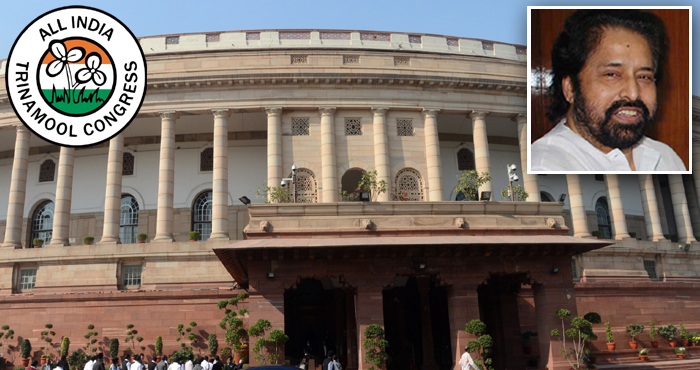
FULL TRANSCRIPT
Sir, Shunya Kaal me aap State subjects ko allow mat karein. Yeh House ke khilaf hain.
State subjects are not allowed to be raised on the floor of the House if it is a law and order situation. If it starts then every Member under their jurisdiction will raise the same issue and your Zero Hour purpose will be a big zero.
Sir, I will request you to take a strong step in this regard. Thank you.

FULL TRANSCRIPT
The 34 years of the Left Front misrule in Bengal has left the State with a huge debt burden. For the repayment of the Rs 1,91,835 crore loan, the State had to borrow Rs 1,53,741 crore, taking the total loan to Rs 3,45, 577 crore. In 2018-19 we had to pay Rs 49,656 crore as total loan repayment.
Despite this, due to prudent fiscal management, the debt to GSDP ratio of our State has gone down from 40.65% to 35.63% in seven years from 2010-11 to 2017-18. The revenue deficit to GSDP ratio has also dropped during the same period, from 3.75% to 0.96%. The fiscal deficit has almost halved, from 4.24% to 2.83%.
The planned expenditure of Bengal has grown over five-fold, from Rs 11,837 crore in 2011-12 to 56,604 crore in 2017-18, and the capital expenditure has grown over eight-fold, from Rs 2,225 crore to 19,368 crore. Added with significant strides in many indices of human development, particularly in the fields of education and health, these will have a multiplier effect on the long-term growth of Bengal’s economy.
Therefore, the Government should ensure that our efficiency and equity be rewarded, and that the debt burden does not remain a permanent drag on Bengal’s economy. I urge the Government to take urgent steps to address this issue.

FULL TRANSCRIPT
On 20th June in a public meeting at Paschim Medinipur a BJP leader and Former Union Minister has given an open threat to Bengal Chief Minister. He said, “A lot is waiting for you. The Parliament is still running so the nails and teeth are not being seen. See what happens when the parliament session is over.”
And another person who is the State President of BJP and now the Member of Parliament of Medinipur Constituency, said, “If you do not get the money, do not allow them to live in the village.”
These are the languages of the BJP leaders. They are instigating people to riot in Bengal. They are destroying the federal structure. In a democracy this is not done.
Open threats to create violence in Bengal. Open threats to impose President’s rule in Bengal. I strongly urge the Government to take this issue seriously.